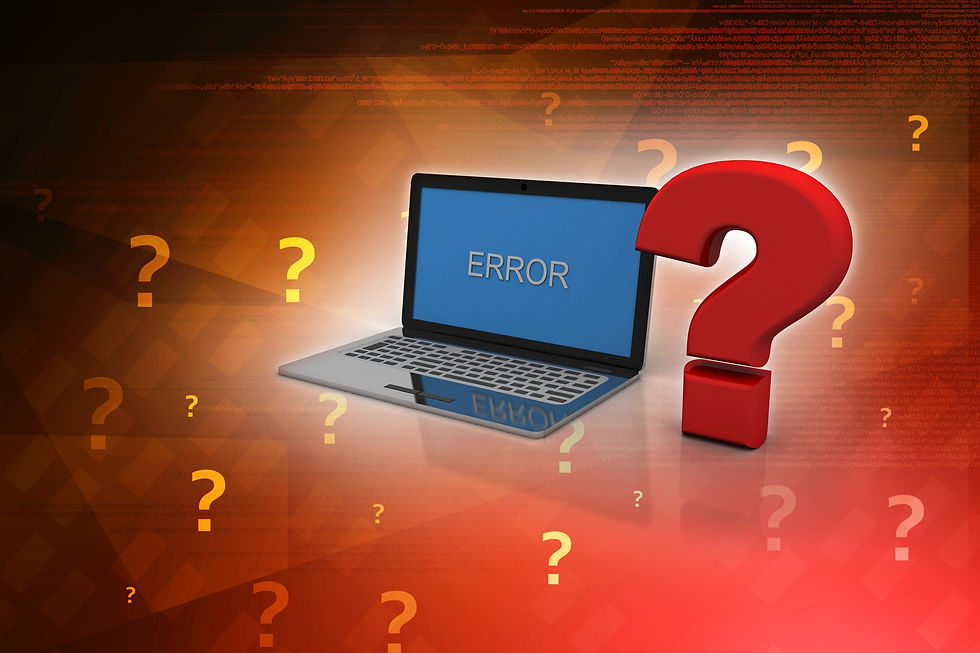Wrong Questions Lead to Wrong Answers
- Eric Tokajer
- May 3, 2021
- 4 min read

When I was a young man searching for G-D, within the framework of Judaism that I was raised in, I found myself finding more questions than answers. This in and of itself was not a bad thing because Judaism teaches its followers to ask questions. Growing up I loved my people, my faith, and my heritage. Yet, the more I searched in the Scriptures, the more questions I found that caused me to doubt some of what I had been taught. One such question was concerning Yom Kippur, the Day of Atonement.
Before I get to my question let me explain a little about Yom Kippur. Yom Kippur is considered the most holy day of the year in Judaism. This is a day when all work ceases and Jews who may not attend synagogue any other day gather together for worship.
Why is this day considered so holy? During the days of the Tabernacle, and later when the first and second Temples were built, this was the one day of the year when the High Priest would become the mediator for Israel’s sins. On this day each year, the High Priest would make a special sacrifice and then he would sprinkle the blood of that offering upon the Ark of the Covenant. Without this sacrifice and sprinkling of blood, there would be no covering of sin and Israel would be judged unatoned or uncovered before their holy G-D.
Back to my question. If Judaism required a High Priest and a sacrifice on Yom Kippur in order to have atonement or be judged righteous before G-D, how do we as Jews today receive atonement when we have no Tabernacle or Temple and no High Priest to make a sacrifice on Yom Kippur? I searched for years for the answer to this question. I asked many rabbis and read the writings of other rabbis without finding an answer to this question. This is a question that every Jew should be compelled to find an answer to because without this answer we can not have an assurance of our atonement.
It wasn’t until I began to read a different Jewish book that I found an answer to this important question. This other Jewish book was the New Testament and within its pages I was able to find answers to my questions about Yom Kippur. Not surprisingly I found I was asking the right question but from the wrong standpoint. I was asking how we as Jews receive atonement since we do not have a High Priest nor a Tabernacle or Temple in order to have the atonement sacrifice. After reading the New Testament, I found my question was faulty because the Jewish people were not left without a Tabernacle because the Torah teaches we have always had a Tabernacle as it stands in the Heavens. Moses made a copy of the Tabernacle in the Heavens from the pattern provided to him by G-D as we read in Exodus 25:40:
40 See that you make them according to their pattern being shown to you on the mountain.
It is this Tabernacle that Paul refers to in Hebrews chapter 8:5:
5 They offer service in a replica and foreshadower of the heavenlies—one that is just as Moses was instructed by God when he was about to complete the tabernacle. For He says, “See that you make everything according to the design that was shown to you on the mountain.”
We also have a High Priest named Yeshua who serves as the mediator for Israel as we see in 1 Timothy 2:5:
5 For there is one God and there is one Mediator between God and men—a human, Messiah Yeshua,
And Hebrews 8:1-3:
1 Now here is the main point being said. We do have such a Kohen Gadol, who has taken His seat at the right hand of the throne of the Majesty in the heavens.
2 He is a priestly attendant of the Holies and the true Tent—which Adonai set up, not man. 3 For every kohen gadol is appointed to offer both gifts and sacrifices, so it is necessary for this One also to have something to offer.
Our High Priest Yeshua entered the eternal Tabernacle in the Heavens and sprinkled the blood of the sacrifice upon the Ark of the Covenant as we read in Hebrews 9:1-2:
11 But when Messiah appeared as Kohen Gadol of the good things that have now come, passing through the greater and more perfect Tent not made with hands (that is to say not of this creation), 2 He entered into the Holies once for all—not by the blood of goats and calves but by His own blood, having obtained eternal redemption.
I realized I was asking the right question “How are Israel’s sins atoned for?” but asking it the wrong way. After reading the New Testament, I concluded that my belief that we do not have a Tabernacle or Temple, a High Priest, or an Atonement Sacrifice was completely wrong. With this new biblically sound information, I was now able to ask my questions with the correct foundation. I then understood we do have a Tabernacle, we do have a High Priest, and we do have a once and for all sacrifice that provided the atonement for Israel.
Asking questions is good, but asking the right questions is better.





Comments